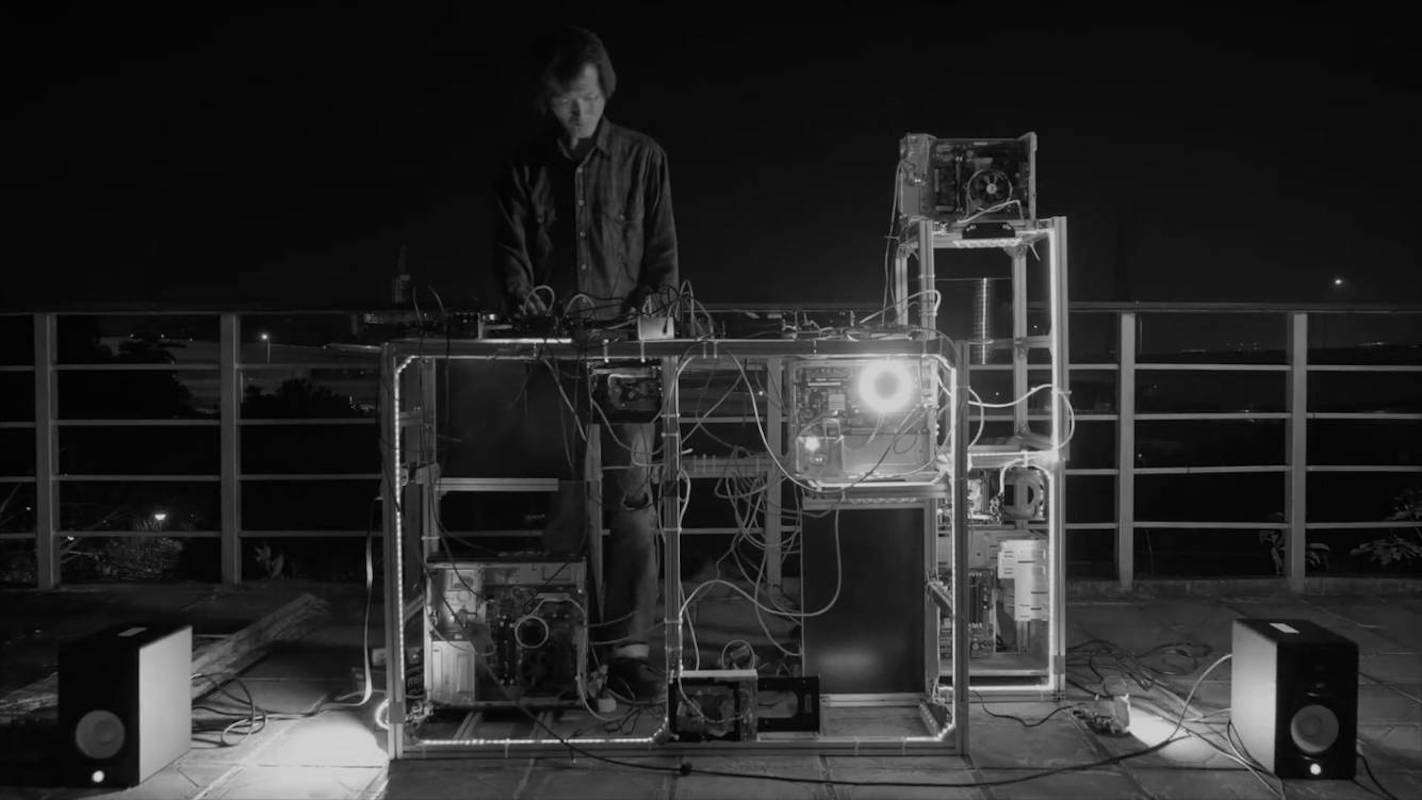by Brian Hioe
語言:
English
Photo Credit: Screenshot
The following article originally appeared on Electric Soul, a Hong Kong-based electronic music magazine and ticketing platform, on January 19th.
TAIWANESE NOISE LEGEND Liao Ming-he (廖銘和), better known as Dino, passed away on Tuesday at age 45. Born in 1976, this proved an early death for someone who was viewed as a pioneer in the Taiwanese noise scene and one of its elder statesmen.
Dino died from respiratory failure, having decided to not proceed with a tracheotomy. This took place following a diagnosis of esophageal cancer last year, which necessitated the installation of an artificial esophagus for food intake. Before his death, Dino met with or video-chatted with friends, passing away at 6:49 AM.
In particular, Dino was considered one of the representatives of second-wave Taiwanese noise from the 1990s, along with figures such as Wang Fujui. His origins as a musician were from the Taiwanese punk scene, having served as the bassist for storied punk band The Clippers. In this way, Dino’s origins were from the punk and noise scene following the lifting of martial law in Taiwan, a time of unprecedented sonic experimentalism that probably never been seen in Taiwan since.
As a young man in the punk scene, Dino was often mistaken for someone older, due to suffering from lung disease and being thin. By his own account, Dino’s musical transition to noise was also driven by his desire to express his own emotional ferment, but Dino found it easier to do this alone than with a band. With a band, after all, one would have to practice every week and then there was the matter of interpersonal relations. By contrast, with noise, it was only a fight between one’s self and one’s equipment.
Dino’s instrumentation was always simple, using secondhand, recycled equipment that he would sometimes burn out in the process of his performances. Likewise, as he put it, sometimes he might prepare relatively little for a performance except for a drink of kaoliang.
But in this way, many of his improvisational performances were adapted from the live setting itself, Dino summoning music from broken devices, trash, and refuse that he enchanted voice out of and drew new life from. It was not uncommon for Dino to calmly sit down in front of his gear and blow away other acts with much more ornate set-ups.
Indeed, despite being in the eye of a sonic storm during his performances, there always seemed to be a calmness about Dino. This was also reflected in his relatively quiet manner and softly humorous manner of speaking.
Apart from noise and the bass, Dino also played the guqin, and was an expert in traditional tea ceremonies. In this way, Dino blended traditional Chinese aesthetics with noise, particularly having an interest in the British punk scene. Dino seemed to emphasize the simplicity of noise–that there was an elegance to it, in spite of the auditory harshness.
Following Dino’s passing, there has been an outpouring of tributes to him from the experimental scene and among artists in Taiwan. Despite being one of contemporary Taiwan’s most reversed noise artists, there never seemed to be any sense of distance between him and those several generations removed, and after a performance, he could be found quietly drinking with the audience members and other performers, not always having the most to say, but often smiling mischievously to himself. He will be missed.



